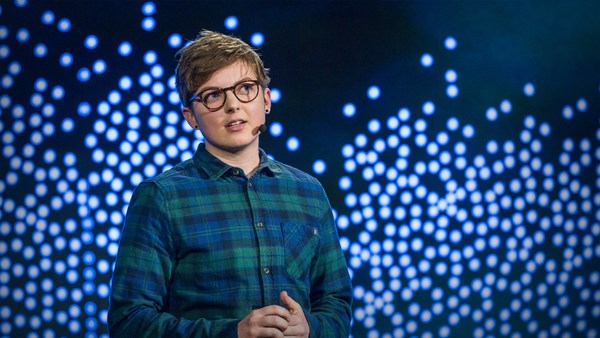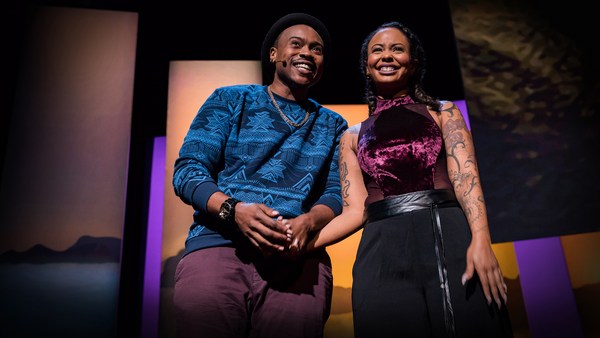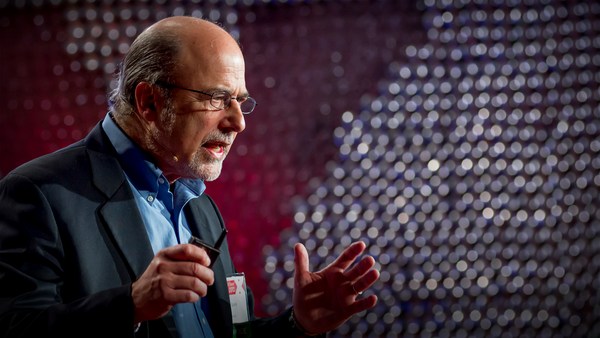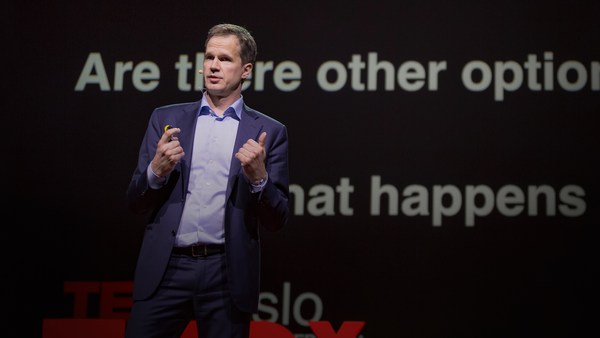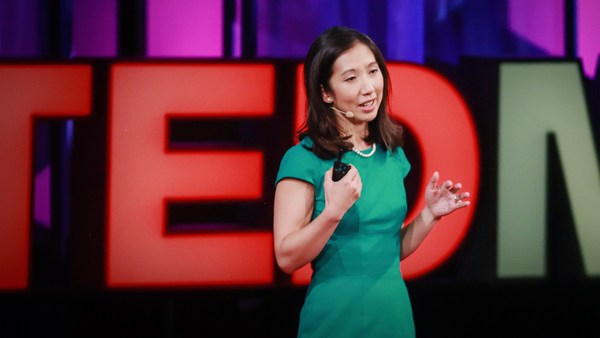About six months into my career as a therapist, I was working at a drug and alcohol rehab facility. I got a call from one of the nurses down at the detox unit. She asked me to come down and assess one of the new patients that had arrived earlier in the day. So I went down to the unit and had the pleasure of meeting Anne. Anne's a transgender female, and as her and I started talking, she was sharing with me about what brought her into treatment, but I could hear this fear in her voice, and I could see this worry in her eyes, and she began to tell me that she didn't fear coming into rehab and having to give up drugs and alcohol. Her fear was that the doctors that were going to be treating her would not treat her as her female self.
She then told me about this ongoing pain that she has experienced her whole life of being assigned male but knowing she's female. And what she meant by that is, when she was born, the doctor held her up to her parents and based on her genitalia said, "It's a boy." She always knew she wasn't a boy. Many years passed and the feelings that she was feeling and holding all this in grew and grew, and she knew she had to come out to her family. And when she did, it didn't go over so well. Her parents said, "Absolutely not. You're not a girl. This is not how we raised you. We don't know what you're thinking. Get out." So Anne then found herself on the streets and in and out of homeless shelters, and it's here where she started using drugs and alcohol to numb this pain she felt inside. She told me about her journey of being in and out of hospitals and rehabs trying to get sober, and when she did, the health care providers and doctors wouldn't use the correct female name or pronouns. This caused her pain.
You see, when I was studying to become a therapist, I wasn't taught how to work with transgender patients. I had no idea these would be the patients I'd be working with. But the more I worked with Anne and other patients like Anne, I began to see my mission evolve, and that was to make sure that the transgender community got their health care needs met. The more I looked into this, I saw how this very real fear of violence, discrimination and this lack of acceptance caused so many of these patients to turn to alcohol and drugs. And I also heard these horror stories of when these patients were seeking medical care and how they were treated, and how a lot of their medical needs were ignored.
Now let me tell you about Leah. I had the pleasure of meeting Leah a few years back. She's a female and she has a wife and a child. See, Leah was also assigned male at birth and she knew since she was a young child that she was not a male, that she was a female. She hid it from herself and from everyone she knew, especially from her wife, until the age of 50. She couldn't take it anymore. She was like, I can't keep living like this. I gotta get honest. She was extremely scared to tell her wife. What if her wife said, "This is unacceptable, I want a divorce, get out"? To her surprise, her wife was accepting. She said, "I love you regardless of who you are. I want to help you in every way I can." So she talked with her wife, and she made the decision that she wanted to medically transition, and she was interested in being assessed for hormone replacement therapy, otherwise known as HRT. So she made an appointment with her doctor. She arrived on the day of her appointment early. She filled out all the paperwork, put the name correctly down there and waited patiently. A little bit of time passed and a nurse called her back to the exam room. When she got back there, she took a deep breath, and the doctor and the nurse walked in. She extended her hand to the doctor and said, "Hi, I'm Leah." The doctor looked at her, didn't shake her hand and said, "Why are you here?" She took another deep breath and said, "Well, I'm a transgender female. I've known this my whole life, I've hid it from everyone, but I can't do it anymore. My wife's supportive, I can financially afford it, I've got to make these changes. Please consider me, and let's evaluate me for HRT." The doctor said, "We can't do anything today. You need to go get an HIV test."
She couldn't believe it. She was furious. She was angry. She was disappointed. If her doctor treated her this way, how would the rest of the world treat her? First, he wouldn't shake her hand, and second, when he heard she was transgender, all he cared about was getting an HIV test and ending the appointment. He didn't even ask her any other questions.
See, I can understand where Leah's coming from, because the years that I've worked with the community, I hear myths every single day that aren't true at all. A couple of those are: every transgender person wants to transition with medication or surgery; transgender people are mentally ill, this is a disorder; and: these people aren't real men and women. These are all myths and untrue. As this community expands and grows older, it is imperative that all health care providers be trained on how to take care of their health care needs.
Back in 2015, a survey was done and found that 72 percent of health care providers did not feel well-informed on the health care needs of the LGBT community. There's a huge gap in the education and training.
Today, in this talk, I want to offer a new way of thinking for three groups of people: doctors, the transgender community and, well, the rest of us. But before we do, I want to cover a couple of definitions that's going to help you wrap your head around gender identity a little bit more. So I hope you've got your paper and pen. Get ready to take some notes.
So let's start out with this idea of a binary system. And what this means is, before, we always thought there was only two, male and female. Get it? Binary? Right? So we've come to find out that this isn't true. Gender identity is a spectrum with maleness on one side and femaleness over here on the other side. This spectrum of identities include identities such as gender-nonconforming, gender-affirming, gender-nonbinary, two-spirited, three-spirited, as well as people that are intersex. The term transgender is this umbrella term that encompasses all these different types of identities. But for today's talk, I want you to think about transgender as someone who is assigned a sex at birth that doesn't match with who they are as a person and their sense of self.
Now, this is very different than biological sex. So gender identity is sense of self. So think of it as what's between your ears: sense of self, who you are. This is very different than biological sex, right? Hormones, genitalia, chromosomes: that's what's between our legs.
Now, you may be thinking, "Dr. Kristie, I have never questioned who I am. I know I'm a man, or I know I'm a woman." I get it. You know who you are. This is how many transgender individuals feel. They just know who they are with that same conviction.
It's important to know that there are many different types of identities, and I identify as a cisgender female. Now, for all y'all out there that like to know how to spell things, cis is spelled "c-i-s." It's the Latin term for "on the same side of." When I was born, the doctor held me up to my parents and said, "It's a girl." All this, based on my genitalia. Even though I grew up in a small farm town in Georgia, very much a tomboy, I never questioned that I was a female. I've always known I was a girl, regardless of how I was as a kid.
Now, this is very different than someone who's transgender. Now, trans is a Latin term for "on the other side of" -- think about transcontinental airlines, across, on the other side of -- someone that's assigned a sex at birth and they identify on the other side of the spectrum. A transgender male is someone who was assigned female at birth, but their sense of self, who they are, how they live their life, is as a male. And the opposite is, as we talked earlier, a transgender female, someone that's assigned male at birth but lives their live and sense of self as a female. It's also important to point out here that not everyone that has a nonbinary identity identifies with the term "transgender."
Just so nobody gets confused, I want to point out sexual identity, or orientation. That is simply who we're attracted to, physically, emotionally, sexually, spiritually. It's got nothing to do with gender identity. So just for a quick recap, before we continue on: gender identity between the ears, biological sex, just think of it between your legs, and then sexual identity, well, sometimes we use our heart, but it's here. Three very different identity spectrums.
Now, the average medical student spends about five hours learning about the LGBT health-related needs while they're in medical school. Now, this is despite us knowing that there are unique health risks to this community. And there's an estimated 10 million American adults that identify as LGBT. Most doctors that work with transgender patients, they learn trial by fire. That means they figure it out as they go along, or the patient ends up spending their time trying to teach the doctor how to take care of them. Many doctors don't feel comfortable asking about gender identities. Some don't feel like it's relevant at all to their medical care and others just don't want to say the wrong thing. Many doctors who say something inappropriate or they say something negative, they may not be coming from a malicious or mean place, they may have never been trained on how to care for these individuals. But this can't be accepted as a norm anymore either.
So what happens to a transgender male -- for a quick recap, that's someone who is assigned female at birth but lives their life as a male -- what happens when this transgender male goes for their yearly gynecological visit? How that doctor treats that patient will set the whole tone for the office. If that doctor treats that male with the correct pronouns, correct name, gives dignity and respect, it's highly likely that the rest of the staff will too.
So that's a little bit about my thoughts on doctors, and now let's move on to the transgender community. I'm here talking about fear, but y'all know who is really fearful, right? It's the transgender community. Earlier I shared the story about Anne and how she was so worried about going into treatment and not being respected as her female self, and then Leah who was scared about how her doctor would react, and the second that he didn't shake her hand and ordered that HIV test, her fears came true. The transgender community needs to be empowered to speak up for their health care needs. The days of remaining silent and taking whatever treatment you can get are over. If you don't speak up for your health care needs, no one's going to do it for you.
So what about the rest of us? A lot of y'all, maybe in the next week or a couple of months, are going to have a doctor's appointment, right? So let's say you go to your doctor's appointment and when it's over, you feel worse than you did when you got there. What if you felt dismissed by the doctor, that they ignored your needs, or you even felt judged? That's what happens for many of the 1.4 million transgender adults here in the US if they're lucky enough to get an appointment.
Now, you may be thinking, "Why is this important to me? I'm not transgender. I don't know anybody that's transgender. Why should I even care?" Think of it this way. A transgender individual is human, just like you and me. They deserve competent and trained health care providers, just like you and me.
So let me ask, if you don't mind raising your hand: Do you know or have you met anyone who is transgender, gender-nonconforming, agender, intersex, two-spirited, three-spirited?
Thank y'all so much. Lovely. Thank y'all. Every one of y'all who did not raise your hand, in the very near future you will get the opportunity to meet someone that falls into one of these identities, I guarantee it. The number of this community is increasing. That's not because it's a fad or the new thing to do. It's safer to come out. There's more awareness. There's more visibility. There's more safety, so people are speaking up about their true self like never before. That's why it's so important that our health care system get on board and make sure that our doctors and health care providers are trained to approach these patients with dignity and respect, just like we expect.
I remember being in my 11th grade literature class, with one of my favorite teachers, Mr. McClain, and he shared this quote by Heraclitus that sticks with me to this day. Y'all may have even heard it. It's, "The only thing that is constant is that things will change." Familiar, right? Every single one of us face changes in our lives, and often when we're faced with these changes, we've got some difficult decisions to make. Will we remain in fear, stay stuck and not grow? Or, will we face fear with bravery, evolve, take the opportunity to grow? Every one of us face new things. What will you do? Will you remain in fear, or will you grow? I invite each of you, doctors, the transgender community and you and I, to face fear together as we walk into this brave new world.
Thank you.
(Applause)
